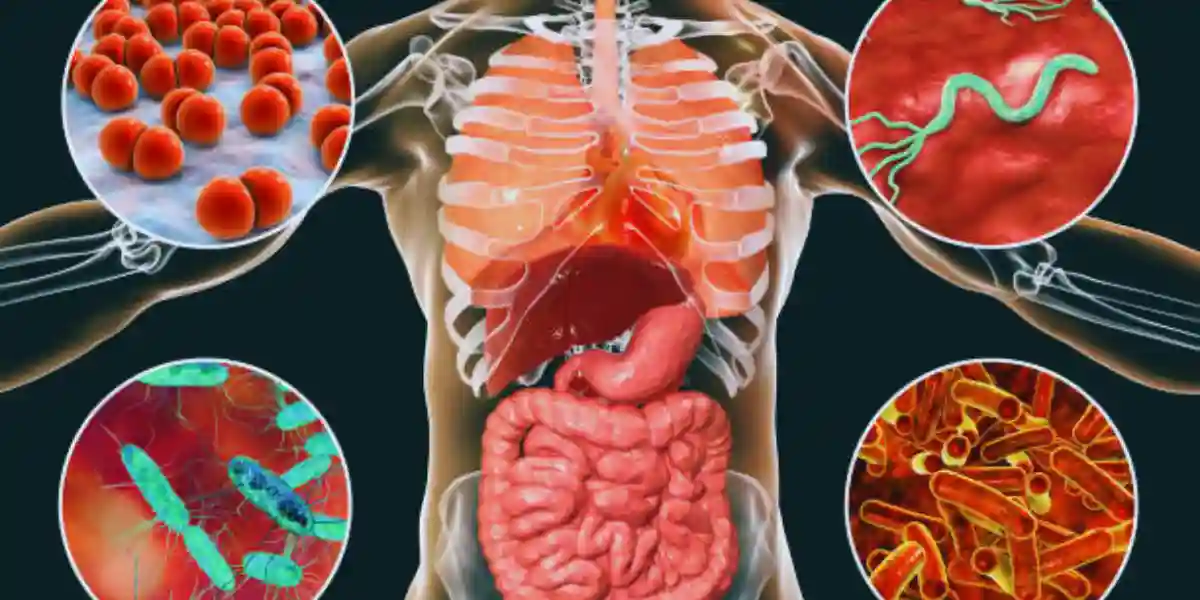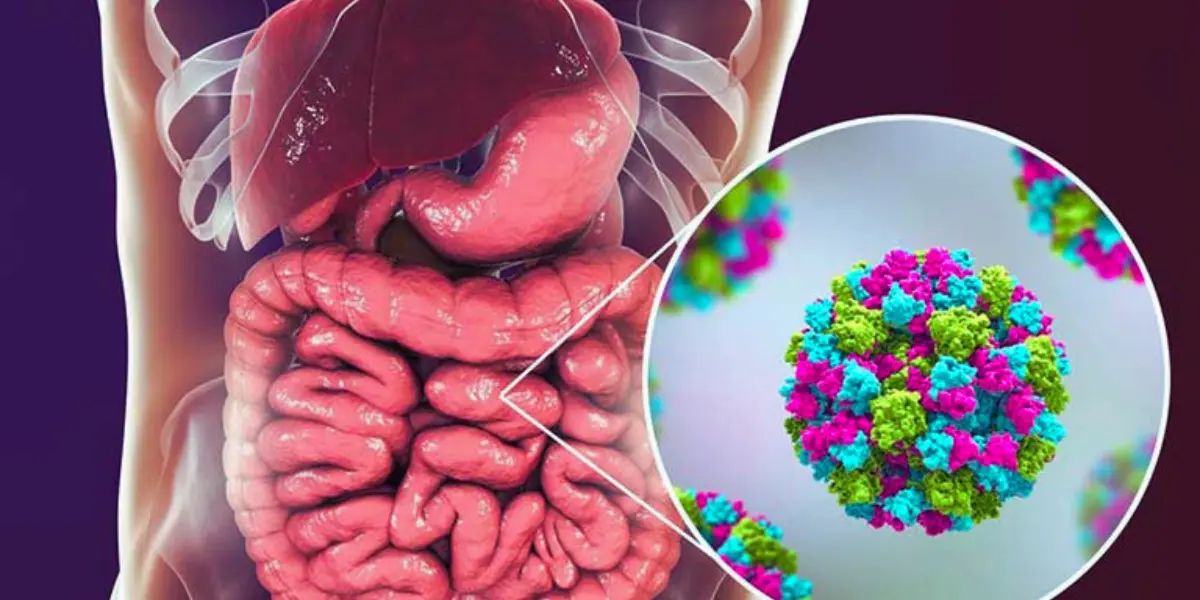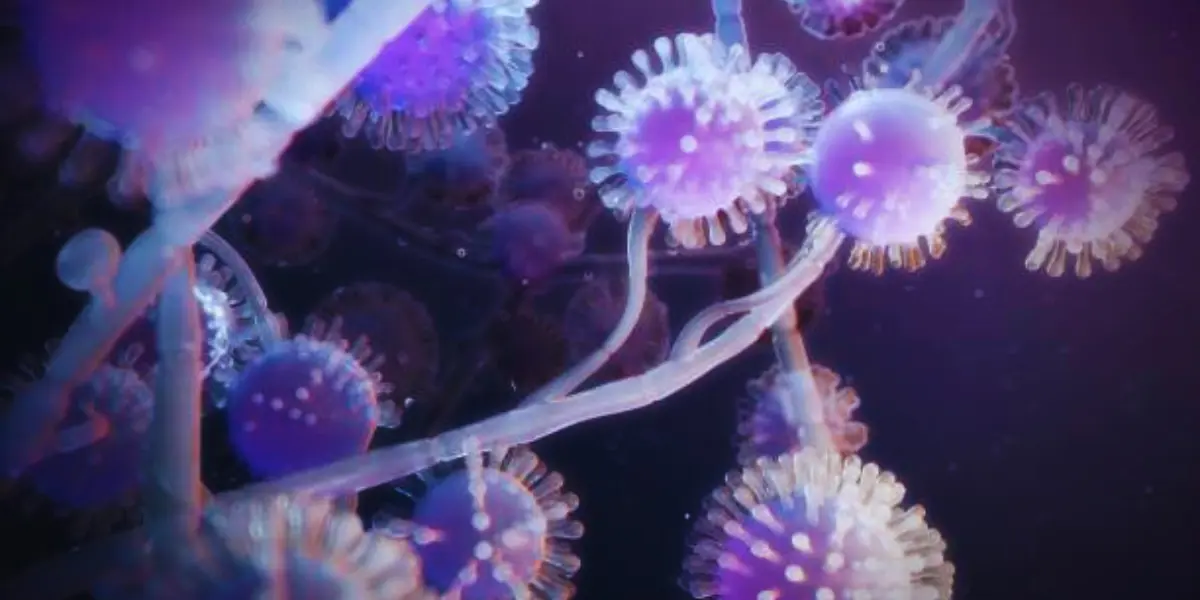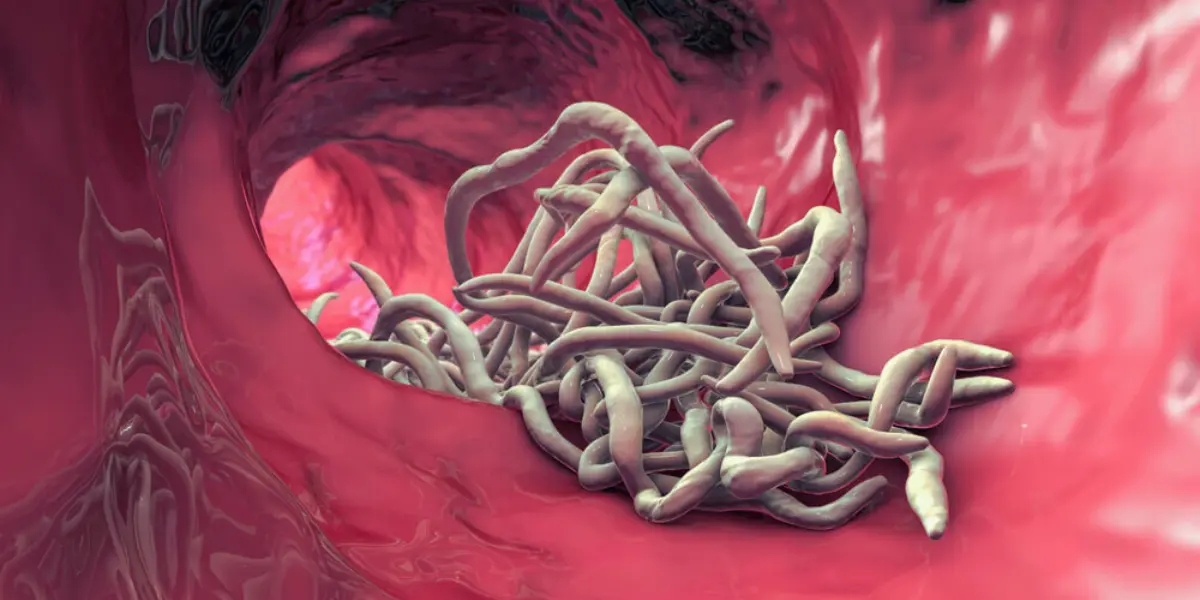The intricate network of the digestive system, particularly the small intestine, is vulnerable to various infections. Even a basic infection in our small intestine can disrupt its delicate balance, leading to one or more health complications. Once infected, our small intestine becomes the battleground for microorganisms, leading to various complications.
Understanding the causes and symptoms of intestinal infections is essential for optimal digestive health and overall well-being. Join us in this article as we explore different Intestinal Infections and the treatments to get rid of them.
Small Intestine Infections: Causes, Symptoms And Treatments
Bacterial Infections
Bacterial infections are caused by the invasion and multiplication of bacteria within the body, which can be beneficial or harmful. They can occur in various parts of the body and range from mild to severe.

1. E. coli Infection
It commonly transfers through contaminated food/ water via strains of Escherichia coli (E. coli).
Symptoms: Diarrhoea, abdominal pain, nausea.
Treatment: Hydration along with prescription-based Antibiotics.
2. Salmonella Infection
It is often spread by Salmonella bacteria that is found in contaminated raw effs and poultry.
Symptoms: Diarrhoea, fever, abdominal pain.
Treatment: Hydration along with prescription-based Antibiotics.
3. Shigella Infection
The Shigella bacteria is commonly spread through contaminated food/water.
Symptoms: Severe diarrhoea, fever, abdominal pain.
Treatment: Rehydration in case of severe diarrhoea along with prescription-based Antibiotics.
4. Clostridium Difficile Infection (CDI)
This bacterial infection is commonly caused by the bacterium Clostridium Difficile that occurs due to antibiotic use.
Symptoms: Mild Diarrhea to severe inflammation of the colon, known as colitis, along with fever and abdominal pain.
Treatment: Antibiotics (metronidazole, vancomycin, and fidaxomicin) for targeting against Clostridium Difficile. If the infection is severe or is re-occurring, healthcare professionals may consider faecal microbiota transplantation (FMT).
5. Vibrio Infection
It is commonly caused by Vibrio cholerae, a notable species within the Vibrio genus.
Symptoms: Excessive watery diarrhoea, vomiting, leg cramps, dehydration and electrolyte.
Treatment: Oral rehydration to replace lost fluids and electrolytes or intravenous fluids may be necessary in cases of severe infection. Antibiotics (doxycycline or azithromycin) may also be used to reduce the severity and duration of symptoms.
6. Campylobacter Infection
This bacterial infection is caused by various strains of Campylobacter bacteria. It commonly transfers through consuming contaminated food, particularly undercooked poultry, unpasteurised milk and untreated water.
Symptoms: Bloody diarrhoea, abdominal pain, nausea, fever.
Treatment: In mild cases, Campylobacter often resolves without any medical treatment. However, if the infection is severe or the patient has a weak immune system, antibiotics (azithromycin or ciprofloxacin) and oral rehydration may be used.
7. Yersinia Infection
It is commonly caused by bacteria from the Yersinia genus. The infection often transfers due to consumption of contaminated food, particularly raw or undercooked pork, unpasteurised milk and contaminated water.
Symptoms: Bloody diarrhoea, abdominal pain, fever and joint pain in specific cases.
Treatment: The infection may resolve on its own in some mild cases, whereas in severe cases or for individuals with weakened immune systems, antibiotics (ciprofloxacin and doxycycline) and hydration may be prescribed.
Viral Infections
Viral infections in the small intestine is crucial for early detection and effective management. Practicing good hygiene, ensuring proper food handling, and staying informed about these viral foes are essential steps in navigating this intricate terrain and safeguarding our intestinal health.

1. Norovirus Infection
This highly contagious virus is commonly spread through contaminated food/water or even surfaces.
Symptoms: Sudden onset of nausea, vomiting, diarrhoea, and stomach cramps.
Treatment: Supportive care, including hydration through oral rehydration solutions.
2. Gastroenteritis
It is often caused by viruses, bacteria, or parasitic infections, particularly norovirus or rotavirus. Gastroenteritis commonly refers to inflammation of the stomach or intestines.
Symptoms: Diarrhea, vomiting, abdominal pain, fever and nausea.
Treatment: In severe cases, Oral rehydration replaces lost fluids and antidiarrheal medications. In mild cases, symptoms may resolve with light food and no medical intervention.
Also Read:- How Serious Is Pyelonephritis? How Do You Treat Pyelonephritis?
Fungal Infections

1. Candida Infection
This yeast infection is commonly caused by a weak immune system, wrong or excessive antibiotic use, and hormonal changes.
Symptoms: Diarrhea, abdominal pain, bloating and constipation.
Treatment: Antifungal medications (fluconazole or itraconazole) and good hygiene practices. Addressing the infection-causing underlying health complications is also essential.
Parasitic Infections

1. Giardia lamblia Infection
Giardia is a microscopic parasite that transfers through contaminated water/ food.
Symptoms: Diarrhoea, abdominal pain, bloating and weight loss in some severe conditions.
Treatment: Antiparasitic medications (metronidazole or tinidazole) along with adequate hydrations.
2. Cryptosporidium Infection
Cryptosporidium is a parasite that commonly transfers through contaminated water.
Symptoms: Watery stools, stomach cramps, nausea.
Treatment: Antiparasitic medications (nitazoxanide) along with rehydration.
Also Read:- How To Cure Swelling Of Intestine?
Summarization
Understanding and recognising the symptoms and causes of small intestine infections is crucial for quick and effective management. Remember, prevention is paramount, and hydration is universally essential along with prescription-based antibiotics, antivirals or antiparasitic medications.